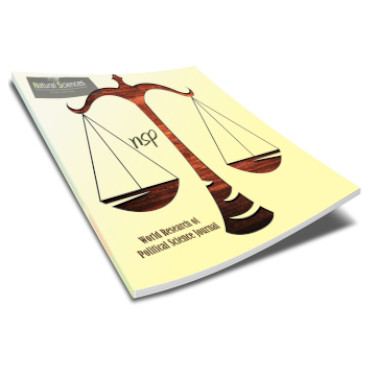
The World Research of Political Science Journal
Abstract
This study attempts to analyse the origins of the ongoing crisis in the Democratic Republic of the Congo, which has escalated recently, specifically since the beginning of 2024, between the Congolese armed forces and various armed groups in the east territory of the country located in the centre of the African continent, a territory rich in natural and mineral resources. The study attempted to explain the roots of this crisis and its early stages, and also focused on the actors involved in the conflict in eastern Congo, whether these actors were internal as Mar 23 Movement or regional such as Rwanda, which ultimately leads to creating a vision to understand the overall aspects of the conflict and its entanglements, then attempts to reach to the appropriate approach, that could help us to reduce conflict dynamics and avoid another regional war within this area, which already suffering from severe turmoil and crises; Such as historical injustices, weakness of the governance structure, legacy of the genocide in Rwanda that was transmitted to Kinshasa, the presence of armed and rebel groups, and the role of neighboring countries in this context in fueling or calming the crisis. Finally, the study recommends that resolving the crisis in eastern Congo requires a comprehensive approach that addresses the root causes of the conflict, promotes good governance, and provides effective solutions. Strengthen the power and effectiveness of institutions, promote economic development, and prioritise the protection of civilians and human rights. Humanity. However, achieving lasting peace and stability in the region remains a daunting challenge.
Recommended Citation
Mahmoud, Nehad
(2024)
"DRC’s Dilemma: Early Stages - Repercussions- Pathways to Response,"
The World Research of Political Science Journal: Vol. 7:
Iss.
1, Article 7.
Available at:
https://digitalcommons.aaru.edu.jo/wrpsj/vol7/iss1/7

